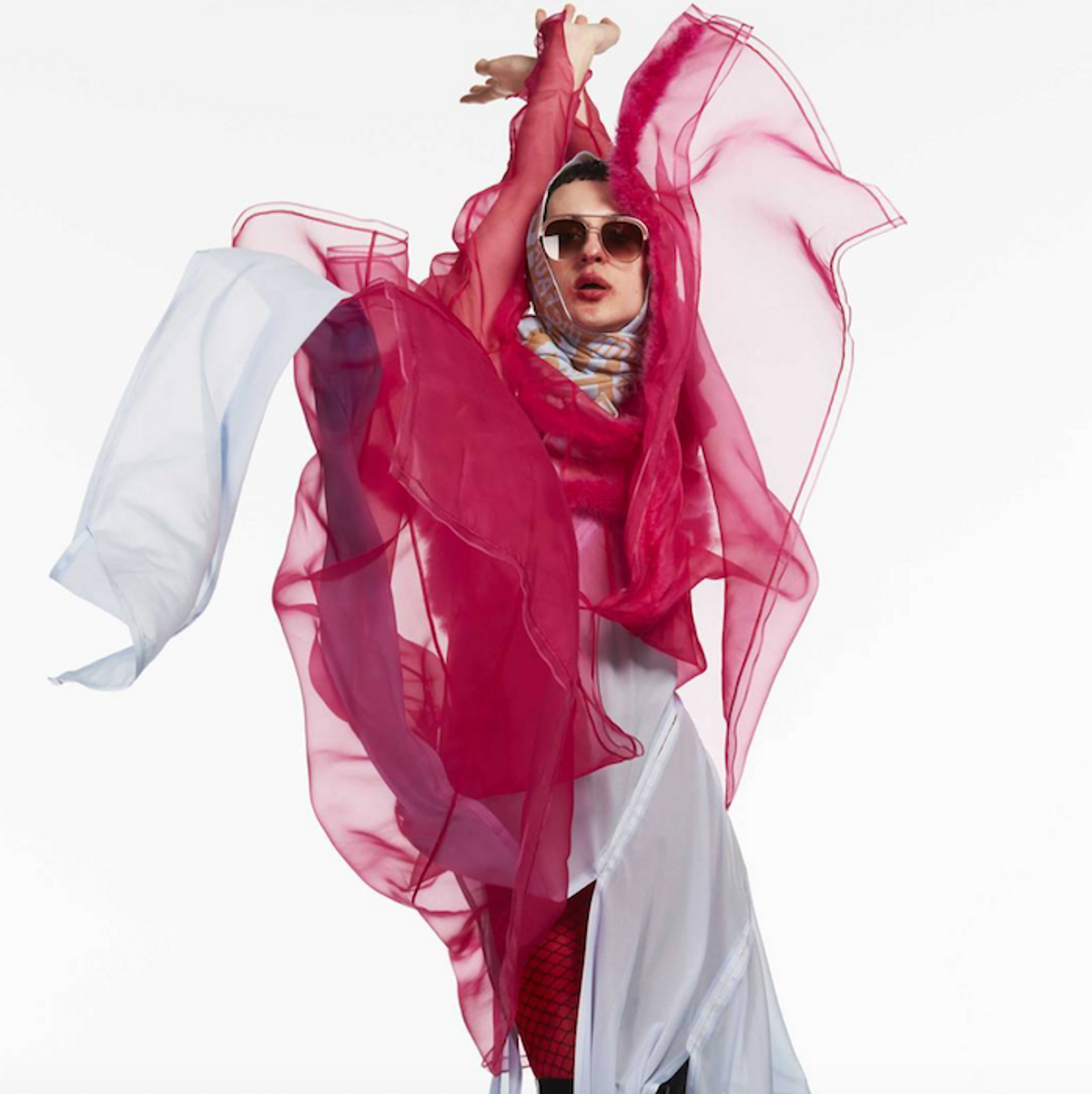Fashion
Meet MAISON the FAUX: a Creative Studio Where Self-Expression is Top Priority

The "humanwear" fashion house breaks down its fall '17 collection, FAUX Cosmetics.
March 10 2017 4:51 PM EST
May 31 2023 6:38 PM EST
By continuing to use our site, you agree to our Private Policy and Terms of Use.

The "humanwear" fashion house breaks down its fall '17 collection, FAUX Cosmetics.
Arnhem-based MAISON the FAUX poses as a fictional fashion house, using "fashion" as a medium, and in many ways a cliche, to raise important questions, provoke social change and create dramatized depictions of reality. Founding duo Joris Suk and Tessa de Boer have been designing "humanwear" since the house first launched in January 2014, catering to a new generation that dresses outside gender and prioritizes freedom over fitting in. Naturally, MAISON the FAUX has become a favorite among queer kids and club personalities alike, whose reputations depend on regularly serving transcendent looks as a form of protest.
Related | Gallery: MAISON the FAUX's FAUX Cosmetics Lookbook
For fall '17, MAISON the FAUX brought an early '90s underground attitude to New York Fashion Week, sending down their runway a colorful cast of models, many of which were queer people of color. The collection, called FAUX Cosmetics, transformed classic silhouettes into a range of subverted non-binary separates--some finished with lace-up detailing evocative of Hood by Air and others made from vinyl for an ultra-shiny plastic edge. Models' wore trashy smudged makeup, like it'd been first applied the evening before and worn through a full night of sweaty dancing--perhaps the most direct way to excite their audience of LGBTQ nightlife figures.
We caught up with the inclusive Dutch creative studio to learn more about FAUX Cosmetics and their mission to foster self-liberation.
OUT: What is MAISON the FAUX?
MAISON the FAUX: [We're] a creative studio posing as a grand couture fashion house. Our house is a loving reaction to the current fashion industry. We play around with the rules and expectations of fashion to make people think and reevaluate the way we behave as an industry and society. MAISON the FAUX is based in Holland and is under the creative direction of Tessa de Boer and Joris Suk. W e both studied Fashion Design at ArtEZ, where we met.
What perspective do you think you're bringing to fashion?
We feel fashion should be about inclusion and freedom as a way to express yourself and celebrate your individuality--that everyone can be themselves in every desired way and don't act too serious. Next to that, we feel fashion should be about fairness in production and creative freedom.
There's definitely a queer angle to the work you do. How do you feel you're "queering" fashion?
I don ' t think we are "queering" fashion, we just ignore the whole idea of gender differences. I think for us it's really important for people to be who they are--that we don't put people in boxes. We need to stop thinking in groups and differences that seperates us--that you can truly be free.
What was the inspiration behind your last collection, Faux Cosmetics?
The inspiration for this collection came out of how fashion and makeup let you express yourself, but it's also really about a facade and falseness. We're really telling a story about identity, realness, fakeness (FAUXness) and the beauty behind something that is faded--just generally talking about how we're so focused on the perfect picture that sometimes we forget how something that's considered ugly by society's standards is actually really beautiful.
I've always been a fan of your casting--what do you look for in models?
For us it is important th at our models really embrace the brand and love what they're wearing. The models give the clothes life and for that matter, during our castings we look for faces [and] personalities that bring good energy and aren't afraid .Anyone can be a key MAISON the FAUX face as long as they are fearless and feel a connection with what we do.
Do you think fashion is strictly superficial or can it have a deeper meaning?
We always try to connect our ideas of design to a fascination or something that really strikes us as relevant and important. I think every collection is a sort of search for answers. We try to analyze things or play with things that we find so strange and so weird. Almost every collection is a lot about this love-hate relationship with fashion--a lot of contradictions about life, fashion and the world.